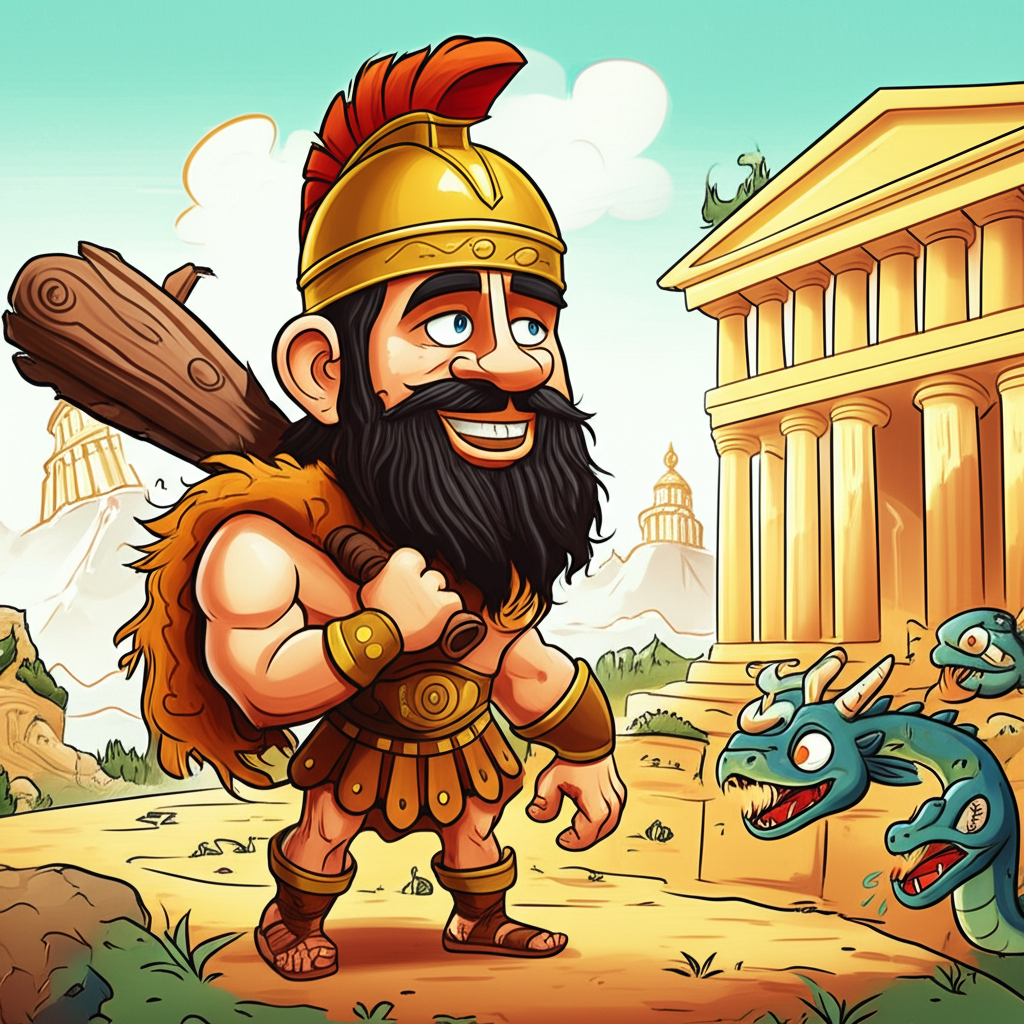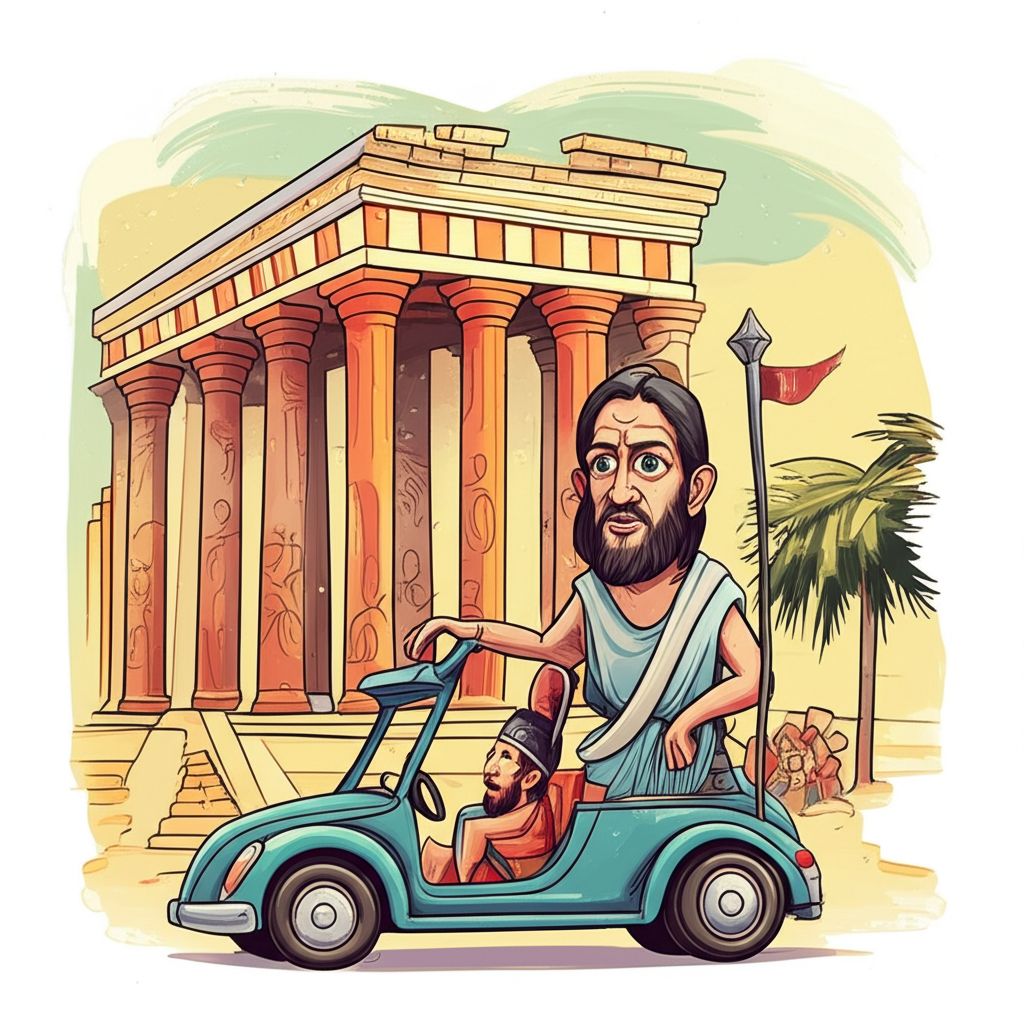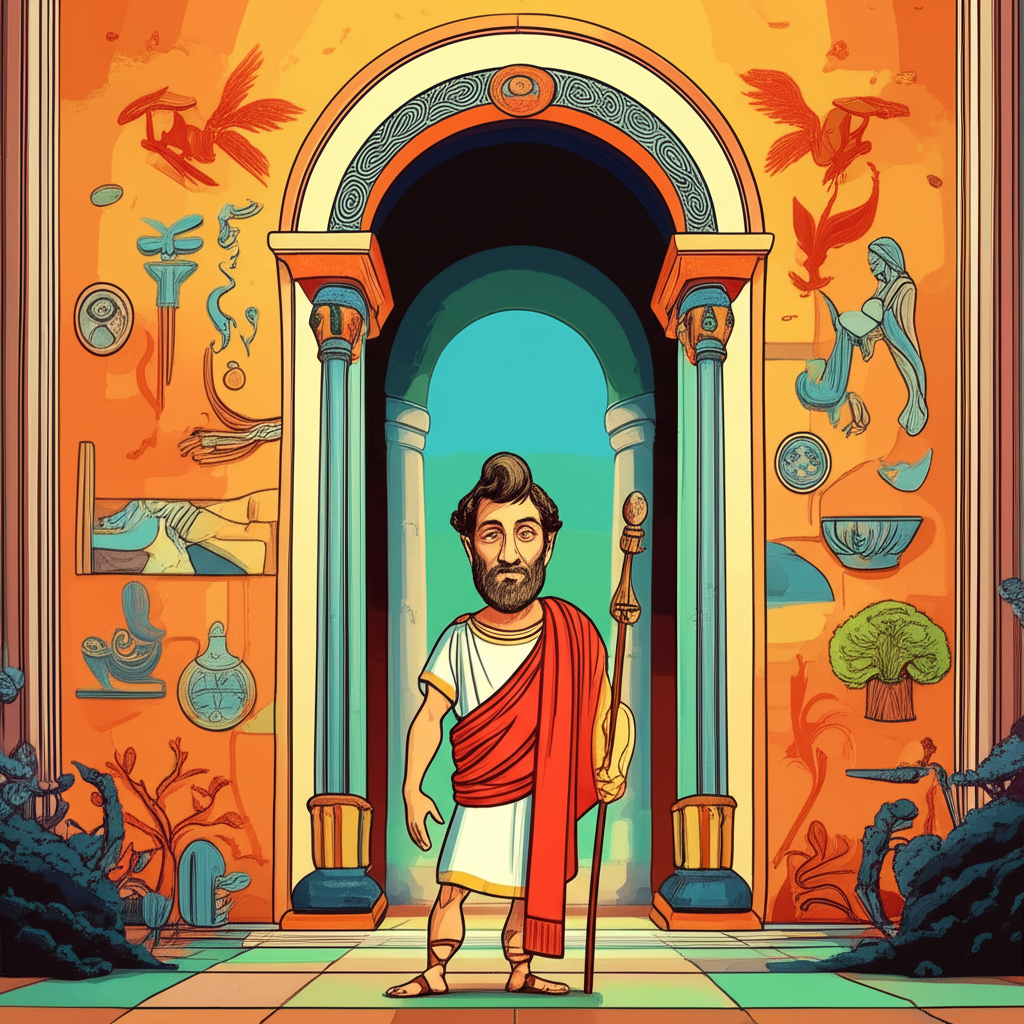
From the sun-drenched landscapes and rugged coastlines of ancient Greece, a rich tapestry of myths and legends has been woven, passed down through generations as stories that sought to explain the world, celebrate human virtues, and explore the complex relationship between mortals and the divine. Among the most enduring figures to emerge from this fertile ground of imagination is Heracles, a hero whose deeds have resonated through millennia. The "Quest of Athens," while not a distinct, singular myth in the same vein as his Twelve Labors, represents a facet of his legend that highlights his connection to this pivotal city-state and the symbolic weight his presence carried. This narrative, a product of ancient Greek storytelling, offers a window into the values and worldview of a civilization that grappled with concepts of strength, justice, and the trials of existence.
The cultural era in which these tales of Heracles flourished was one of burgeoning city-states, intellectual curiosity, and a deep reverence for the natural world, albeit interpreted through a pantheon of gods and goddesses. The ancient Greeks viewed the world as a place imbued with supernatural forces, where the whims of deities could influence human affairs, and where heroes often served as intermediaries, embodying the aspirations and fears of humankind. The environment was characterized by dramatic landscapes – towering mountains, deep gorges, and the vast, unpredictable Aegean Sea – which often served as backdrops for their epic narratives. In this context, myths provided a framework for understanding the inexplicable, from the cycles of nature to the vagaries of fate. Heracles, a figure of immense physical prowess and often driven by divine destiny, fit perfectly into this worldview as a mortal who, through extraordinary effort, could overcome seemingly insurmountable challenges, often on behalf of humanity or the gods themselves.
The central figure in this particular aspect of the myth is Heracles, son of Zeus and the mortal woman Alcmene. He is typically depicted as a man of colossal stature, radiating an aura of untamed power. His strength was legendary, capable of wrestling wild beasts and bending iron to his will. Symbolically, Heracles represented the pinnacle of human physical capability, a force of nature personified. He was often portrayed with his iconic attribute, the lion’s skin of the Nemean Lion, signifying his victory over brute strength and his ability to conquer even the most formidable creatures. He also carried a formidable club, a testament to his raw power. Beyond his physical attributes, Heracles embodied a complex mix of impulsiveness and a deep-seated sense of duty, often compelled by the will of the gods, particularly Hera, his vengeful stepmother, who frequently placed obstacles in his path.
While there isn’t a single, universally codified "Quest of Athens" that parallels the distinct Twelve Labors, Heracles’ connection to Athens is significant and woven into various aspects of his legend. One prominent instance involves his role in helping the city during a time of peril. According to some traditions, Athens was plagued by a monstrous bull, sent by Poseidon, that wreaked havoc on the countryside. The city’s inhabitants were in despair, their harvests destroyed and their lives threatened. In this narrative, Heracles, already renowned for his strength, hears of their plight. Driven by his inherent heroism and perhaps a divine mandate, he journeys to Athens. The confrontation with the bull is a classic demonstration of Heracles’ might. He tracks the beast to its lair, engaging it in a ferocious battle. The imagery here is vivid: the earth trembling beneath the bull’s hooves, the clash of horns against the hero’s muscular frame, the raw, primal energy of the struggle. Heracles, through sheer force and unwavering determination, manages to subdue the beast, either killing it or driving it away, thus saving the Athenians from its destructive rampage. This act of heroism solidifies his reputation as a protector and a savior.
Another significant connection between Heracles and Athens revolves around his lineage and his complex relationship with the Athenian king, Eurystheus, who famously assigned him the Twelve Labors. While Eurystheus was based in Mycenae, his authority extended over many regions, including implicitly Athens. The narrative of Heracles undertaking arduous tasks for Eurystheus, even those that indirectly benefited various Greek cities, underscores Athens’ place within the broader mythological landscape of the time. Furthermore, Heracles was often associated with Athenian heroes and even considered an ancestor of Athenian royalty in some genealogies, linking his legendary status to the very foundations of the city’s identity.
The story of Heracles and his interactions with Athens, particularly in acts of protection and service, held considerable symbolic weight for the ancient Greeks. The defeated bull, for instance, could represent the untamed forces of nature that threatened their agricultural society – storms, droughts, or destructive wild animals. Heracles’ victory symbolized humanity’s capacity, aided by heroic individuals, to bring order to chaos and to protect civilization from the perils of the natural world. His willingness to undertake dangerous quests for the good of others highlighted the virtue of courage and self-sacrifice, essential qualities for any leader or protector. In a broader sense, Heracles’ life, filled with both triumphs and tragic flaws, served as a powerful allegory for the human condition: the struggle against adversity, the pursuit of glory, and the sometimes-unforeseen consequences of one’s actions. His divine parentage also spoke to the ancient Greek belief in the potential for greatness within mortals, a spark of the divine that could be nurtured through heroic deeds.
In the modern world, the legend of Heracles continues to capture the imagination, finding new life in diverse forms of media. His epic tales are frequently retold in literature, from classic adaptations to contemporary fantasy novels. Hollywood has brought his strength and adventures to the silver screen in numerous films, often focusing on his physical prowess and his epic battles. Video games frequently feature Heracles as a playable character or an antagonist, allowing players to experience his legendary might firsthand. In academic circles, the myths of Heracles are studied within the fields of classical literature, mythology, and cultural studies, providing insights into ancient Greek society, its values, and its enduring influence on Western civilization. These modern interpretations, while entertaining, often simplify the complexities of the original myths, focusing on action and spectacle, yet they demonstrate the lasting appeal of this archetypal hero.
It is important to reiterate that the story of Heracles and his quests, including his interactions with Athens, is a product of ancient Greek mythology and folklore. These are traditional narratives told by people of the past, not historical accounts or divine revelations. As Muslims, we recognize that the ultimate truth and the true Creator and Sustainer of all existence is Allah alone. Our understanding of these stories is for cultural, historical, and educational insight, appreciating them as expressions of human creativity, imagination, and the enduring tradition of storytelling that has shaped our understanding of the world and our place within it. The enduring echoes of Heracles’ strength and courage serve as a testament to the power of narrative to inspire, to explain, and to connect us to the rich tapestry of human heritage.




